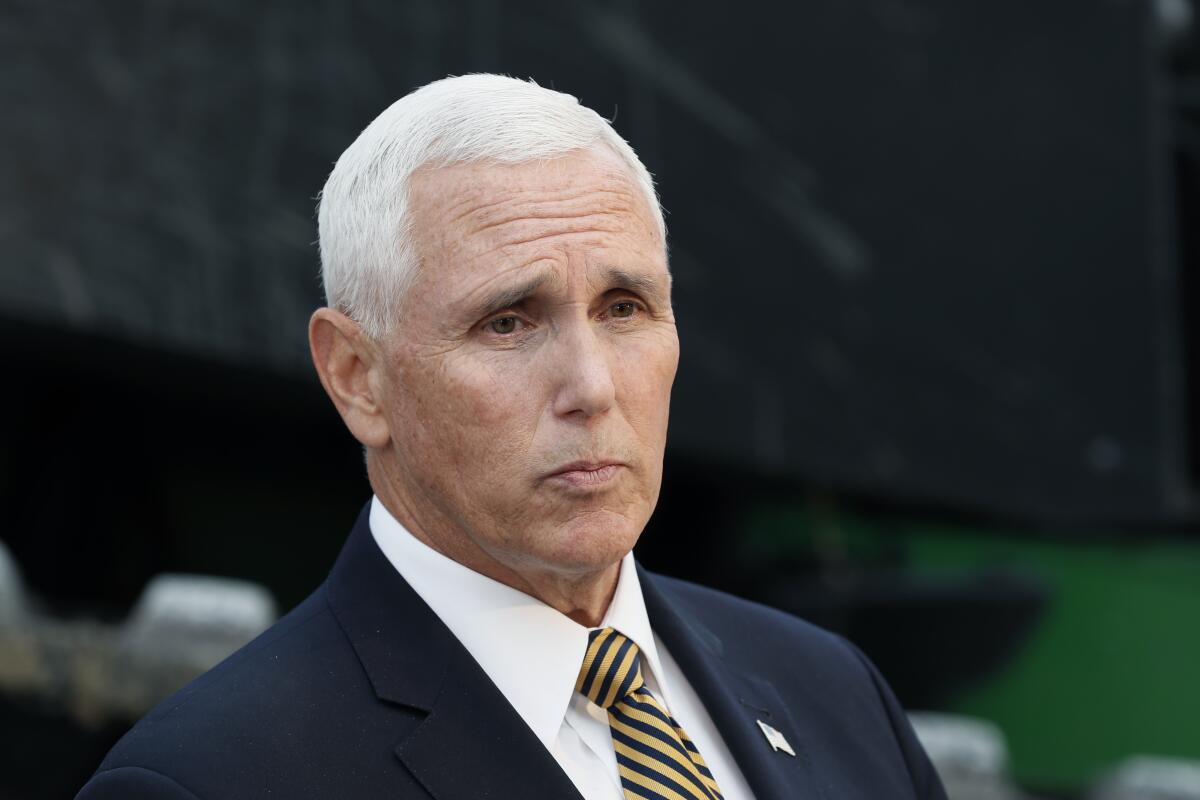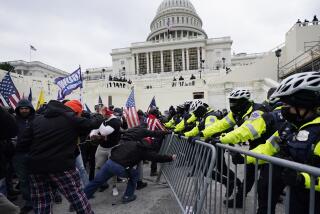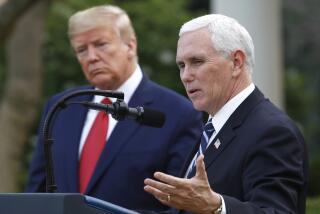Pence falsely links Iranian general to 9/11 attacks

- Share via
On Friday afternoon, Vice President Mike Pence took to Twitter to justify the targeted U.S. attack that killed Iranian Gen. Qassem Suleimani.
But scholars say his tweets contain several inaccuracies, including an allegation that appeared to link Suleimani to the Sept. 11, 2001, attacks.
In that tweet, Pence wrote that Suleimani “assisted in the clandestine travel to Afghanistan of 10 of the 12 terrorists who carried out the September 11 terrorist attacks in the United States.”
As head of the Islamic Republic of Iran’s elite Quds Force, Suleimani, 62, was indeed responsible for a wide array of atrocities.
But to link Suleimani — one of Iran’s highest-ranking officials — with direct involvement in 9/11 is flawed on many levels, said Osamah F. Khalil, an associate professor of history at Syracuse University.
The first inaccuracy is the number of hijackers involved in the 9/11 attacks, which killed nearly 3,000 people in New York, Virginia and Pennsylvania. The correct number is 19, not 12. (A Pence spokeswoman, Katie Waldman, later wrote on Twitter that Pence had meant that “12 of the 19 transited through Afghanistan,” and that “10 of those 12 were assisted by Suleimani.”)
Misagh Parsa, a sociology professor at Dartmouth College, said that either way, there was scant evidence to back up the claim.
“Where is the evidence and who were these 10 people?” she asked.
Iran is a Shiite Muslim theocracy; nearly all of the 9/11 hijackers were from Saudi Arabia, a Sunni Muslim monarchy that for decades has had tense relations with Iran. The hijackers were part of Al Qaeda, the Sunni extremist network led by Osama bin Laden.
Although the 9/11 Commission report states that there was strong evidence suggesting Iranian officials “facilitated the transit of Al Qaeda members into and out of Afghanistan before 9/11,” and that some of them ended up as hijackers, the report did not state that Suleimani was involved, and, furthermore noted that there was no evidence to suggest “Iran or Hezbollah was aware of the planning for what later became the 9/11 attack.”
Indeed, Suleimani was not mentioned even once in the report, which was released in 2004.
Khalil was one of several scholars on Friday who seemed aghast at the errors in Pence’s statements, particularly the notion that Suleimani — an Iranian hard-line Shiite — would want to help Al Qaeda, a radical Sunni group whose members consider Shiites to be apostates.
“It makes little sense from both a religious and political perspective,” Khalil said.
More to Read
Sign up for Essential California
The most important California stories and recommendations in your inbox every morning.
You may occasionally receive promotional content from the Los Angeles Times.














